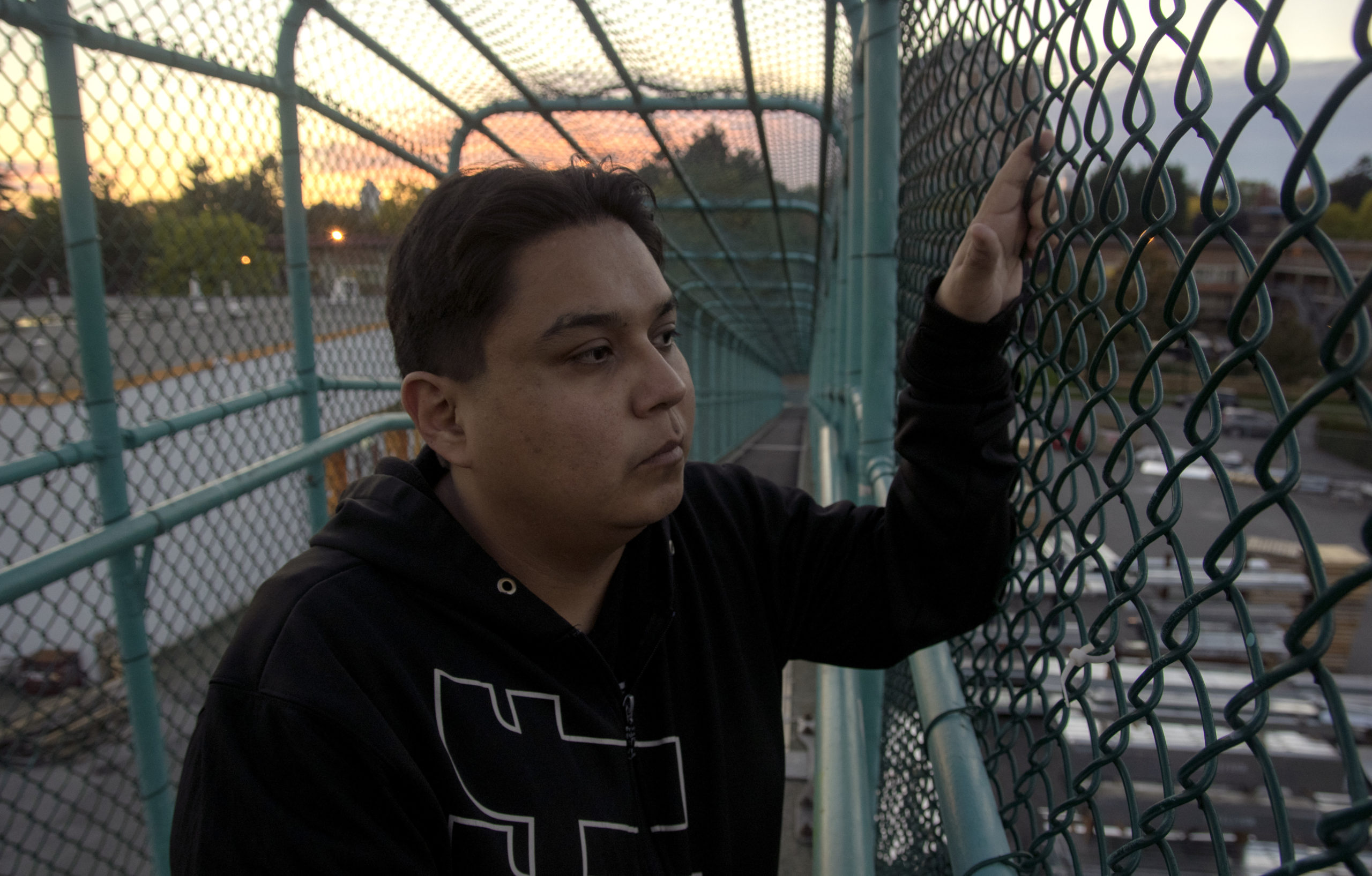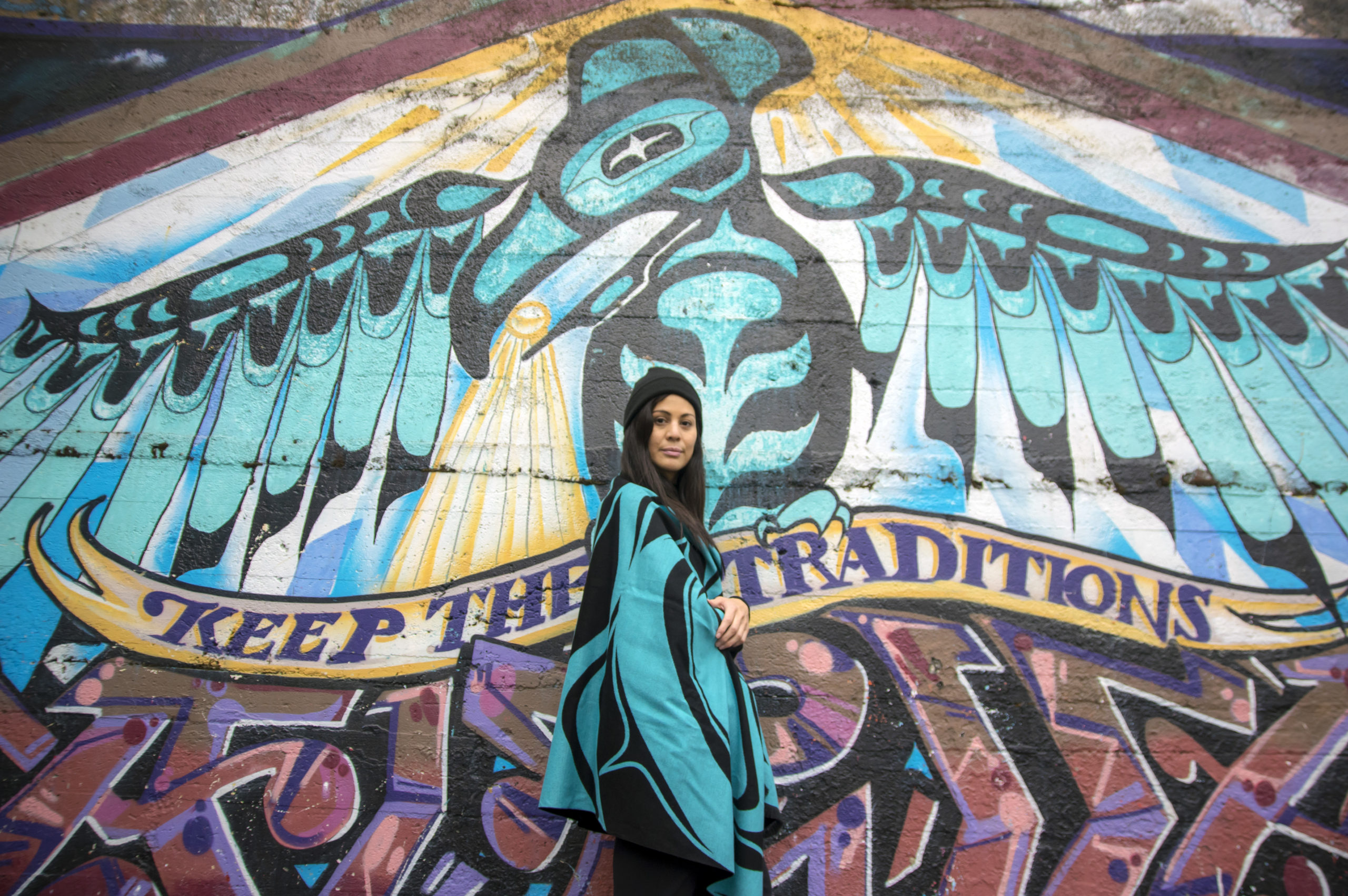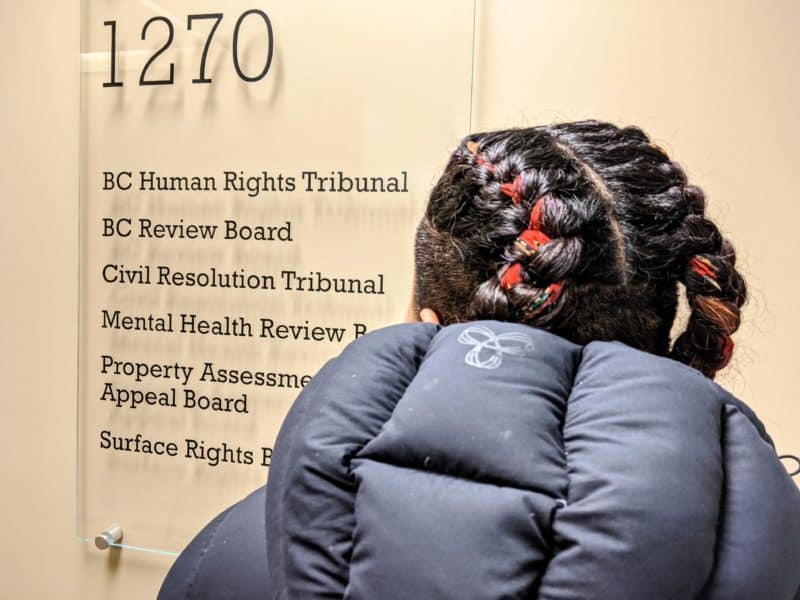
This is from our Urban Nation newsletter. Make sure to share it and subscribe here.
Brielle here. Last week a busload of youth went to Victoria to advocate for themselves and their peers. They had at least one thing in common: they’d all been removed from their families at some point and placed in government care. I had the privilege of travelling with them.
It was the second annual Policy Solutions Day, and these youth, many of them Indigenous, were calling for comprehensive and universal transition supports for any youth aging out of care.
At the B.C. legislature, they hustled from one plushly-carpeted room to another for meetings with more than 30 MLAs — including Katrine Conroy, the minister of children and family development; Scott Fraser, the minister of Indigenous relations and reconciliation; and Carole James, the minister of finance.
Bravely they spoke truth to power. One young woman said she’d been abused in nine of 10 foster homes, and now she lives with Post-traumatic stress disorder (PTSD). She said her cat helps her cope with her anxiety. A young Indigenous man said he was moved eight times in nine months after he was removed from home when he was eight years old. A young white person said they had an okay time in care, but they heard horrible stories from their Indigenous friends in care, and so they’d come to advocate for them.
Together, the youth explained why turning 19 can be another traumatic event in their lives. It means saying goodbye to your social worker and your makeshift home, however tenuous it may be, they said. It means navigating a patchwork system of supports, in which it’s too easy to slip through the cracks.
“It shouldn’t be as hard as it is to better our lives,” one youth told Katrine Conroy.
Youth organizer (and former Discourse journalism fellow) Dylan Cohen told Carole James that he’s not willing to accept incremental change. He said the B.C. government’s too quick to celebrate small changes to policies that have huge implications for 19 year olds who are aging out of government care and into community.
We want comprehensive and universal transition supports for any youth aging out of care — and nothing less, he said.
On Friday, I asked folks in our Urban Nation Facebook group what they think of this youth-led effort to change the child-welfare system.
“I think it’s phenomenal,” said Lee Earl Gray, a two-spirited person who uses gender-neutral pronouns. They were in government care, too, from age three to 18, they explained. “I’m pleased to see people standing together. I’m 24 now and finishing my last year in social work and I would love to be a part of this in anyway possible,” they posted.
“Although currently I am situated in the interior of B.C. I stand with them.”
“I hope to see announcements from this government based on the solutions that these young people have brought forward,” group member Ginger Gosnell-Myers added. “The next time I see my MLA I’ll be sure to mention the importance of these solutions and that they need to be implemented.”
What do you think about how these youth are advocating for themselves and what they’re advocating for? Join the conversation in our Facebook group, or send me a note.
What you love

Ambrose Williams says he’s seeing a “resurgence” among First Nations.
“You’re starting to see almost a renaissance of sorts happening within First Nations youth,” the 30-year-old says.
Ambrose sees more and more young people coming up, who are more creative with their use of technology and ways of connecting with the mainstream culture. The last residential schools closed in Canada in the 1990s “but we’re just starting to see the first generations start coming out completely unscathed, to a point, with residential schools,” he says.
With that resurgence comes something he loves: a community and a culture that is both diverse and changing to adapt to the times.
“It’s just really nice to see that resurgence,” he says.
People are talking about
- This CBC story reports that Indigenous people are over-representative in the number of homeless people in Ottawa.
- The German public broadcaster Deutsche Welle reports that Indigenous Mexican farmers are fighting a TransCanada gas pipeline on their lands.
- How offensive are Indigenous-themed Halloween costumes? These Indigenous students gave their takes to The Ubyssey.
- In this CBC Cross Country Checkup podcast, host Duncan McCue examines the decision by prison officials that allowed a convicted child killer to be transferred to a healing lodge.
Cultural connections

Growing up half Filipino and half Indigenous, Theresa Aslin Fresco says she knew she was Indigenous from a young age, but she didn’t fully explore what that meant until later in life.
“I was raised primarily in the Filipino culture. So even though there was a rational understanding that I was indigenous, that part of our culture never really flourished in the home,” she says, “for reasons that I’m sure a lot of other indigenous folks really can get, because colonization and the intergenerational impacts and things like that.”
When she finally learned in grad school about residential schools “and just the whole colonial program,” she says it “was a life changer.”
It “made me turn everything I was studying around and want to do a deeper dive into understanding that, and also understanding who I am, because it completely throws you for a loop when you what they’re like, ‘Oh, my god, that makes so much sense.’”
“I’m sure there are others who have a very similar story,” she adds. “I’ve heard stories around people who were adopted and raised in another culture . . .and never had friends or resources to look into who they really are. That always comes maybe later in life when you’re questioning those things.”
Theresa remembers a TV show that brought together urban Indigenous youth who hadn’t had any real connection to being in nature, introduced them to elders, and then put them in the wilderness for a week or two to “teach them the traditional laws and the skills of being on the land and connecting to land.”
“I remember seeing a couple episodes, then I was blown away. I thought, ‘Man, these are lucky young ones because I never got that exposure,’” she says.
“For them to connect to the land and see what it does to them and how it fills that hole and missing piece inside of them — I love that story.”
Let’s gather
- Oct. 31: Tonight from 5:30 to 9:30 p.m. at Britannia Secondary in Vancouver, youth who want to flex their rap, graffiti and costume skills can compete to win $1000 in prizes at the Hip Hop Drop’s Halloween party. This free event will be held in the cafeteria and is open to all. If you want to compete, email to register: thehiphopdropeastvan@gmail.com.
- Nov. 7: Indigenous Perspectives Society is bringing together speakers and artists to reflect on reconciliation. Presenters will include Eddy Charlie, co-organizer of Victoria’s Orange Shirt Day, and law professor Dr. Jane Dickson, who’ll speak about the justice system and the Gladue process. It’s happening in Victoria, but you can join via live stream. Digital tickets and details here.
- Nov. 8: As part of the Sustenance Festival, head to Mount Pleasant Neighbourhood House to “listen, learn, and participate in a dialogue about community processes to develop effective sharing of Indigenous traditional knowledge and plant use.” Email Jolene to register: jandrew@mpnh.org.
- Nov. 10 to Jan 12 (10 Saturdays): The Fraser Region Aboriginal Friendship Centre Association (FRAFCA) is offering a program to “promote and strengthen father-child relationships.” They’ve got 10 spots available so if you’re interested, give them a call to reserve your spot: 604.595.1170.
If you know about an event that you think should be included in this newsletter next week, send us an email.
And if you’d like to subscribe to our newsletter, click here. [end]



